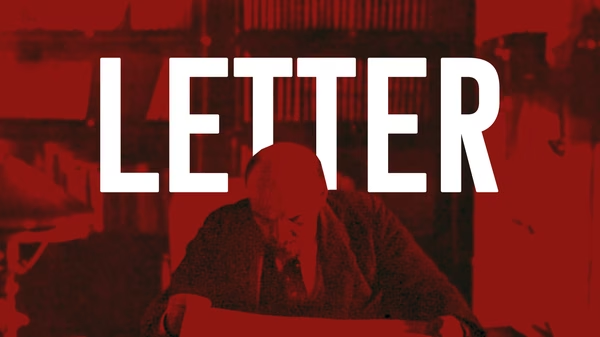On July 15th, Zohran Mamdani met with leading financiers and executives at a closed-door forum organized by the Partnership for New York City (PNYC)—a business group that represents “more than 300 preeminent corporate, investment, and entrepreneurial firms.” PNYC’s board includes the corporate heads of JPMorganChase, BlackRock, Citibank, Goldman Sachs, Pfizer, and Blackstone, to name just a few. On the very next day, Mamdani continued his efforts to woo the city’s elite by addressing a large crowd of tech executives and venture capitalists at a meeting hosted by Tech:NYC.
The Financial Times reported that some of the attendees of the PNYC forum were “won over” after hearing from the Democratic nominee. Executives were “impressed with his willingness to appear before a business class he had long criticized.” Indeed, on the heels of his primary victory, Mamdani’s campaign quickly reached out not only to PNYC, but to leading Democratic party figures in an apparent effort to tamp down the hysterical response from the business class and their political representatives. Kathy Wilde, president of PNYC and self-proclaimed “defender of billionaires” admitted that Mamdani has been “proactive in reaching out to chief executives and financiers and agreeing to speak privately with the business community.” During the forum itself, Mamdani reiterated his discomfort with the phrase “globalize the intifada” and said that he will actively “discourage” those around him from using it. Although Mamdani stuck to his proposal to freeze the rent on subsidized apartments, he reportedly left the door open on whether the policy would remain in place after a couple of years. More importantly, the very act of meeting with the city’s financial elite in private would seem to negate Mamdani’s previous statement that “billionaires should not exist.”
In the past few weeks, reports have also emerged that Mamdani has expressed openness to retaining the Adams-appointed police commissioner, Jessica Tisch. Tisch is the billionaire heiress of the Loews Corporation—her brother, Ben Tisch, is currently the company’s chief executive and president and her father, James Tisch, sits on the board of PNYC. Tisch has made a name for herself in part by pushing to prosecute low-level crimes through the deployment of a ‘quality of life’ police unit. Although Mamdani’s campaign has not made any ultimate commitment to retaining Tisch, both the candidate himself and his campaign manager have publicly praised her.
Mamdani’s campaign team has also undergone significant changes since last month’s primary. Maya Handa, Zellnor Myrie’s former campaign manager, will now oversee Mamdani’s staff. Afua Atta-Mensah, a leadership figure at two progressive non-profits, will now act as the campaign’s new senior political director. Perhaps most disconcerting is the hire of Jeffrey Lerner. Lerner is a veteran Democratic Party operative—holding key roles over the past two decades in the Obama administration, the Democratic National Committee, and as a senior Senate aide. Most recently, Lerner was on the payroll of Actum, a “global consulting firm” which boasts of having staff members that “come from the highest levels of media, government, and politics.”
Lerner will serve as Mamdani’s communications director, having gained experience after working in an analogous role for Andrew Cuomo in 2007. The New York Times has also reported that Patrick Gaspard, a “senior [Democratic] party official” has begun to play a “growing role” advising Mamdani.
Is any of this the least bit concerning? Not according to Grace Mausser, member of the Socialist Majority Caucus and co-chairwoman of NYC-DSA. When asked to comment on Mamdani’s recent moves, Mausser said that “the fate of DSA and… the progressive movement is tied to Zohran’s administration. The No. 1 goal for DSA and I hope a coherent left as we move forward, is to make the administration successful.” In other words, every other organizing project throughout DSA—whether that be workplace or tenant organizing—is to be subordinated to the goal of “[making] the administration successful.”
I will not address the difference between electoral efforts, as they occur under the auspices of the Democratic Party, and the longer, arduous project of building the infrastructure (through organizing in workplaces, neighborhoods, etc.) necessary for DSA, and the socialist Left as a whole, to begin to exercise real power. A facile reading of Mamdani’s actions over the past two weeks would result in charges of opportunism. That is decidedly not my position. Mamdani’s primary victory did constitute a victory for the socialist Left, in the way that the campaign galvanized many young people and drew them into the orbit of DSA. However, as has been noted by Austin B. of Marxist Unity Caucus, there is a profound difference between having the organizational ability to elect a candidate, and having the ability to back up that candidate after they take office. Without a durable infrastructure rooted in working-class institutions, socialists who assume executive office have no option but to engage in cynical, Democratic-party politicking. The act of changing the balance of class forces can not be accomplished solely, or even primarily, through state offices. The historical experience of the working-class movement verifies this belief. On the other hand, we should not be slow to criticize socialist nominees or electeds, for in the minds of many, they stand in for DSA writ large.
-Garrett Camfferman
Liked it? Take a second to support Cosmonaut on Patreon! At Cosmonaut Magazine we strive to create a culture of open debate and discussion. Please write to us at submissions@cosmonautmag.com if you have any criticism or commentary you would like to have published in our letters section.
